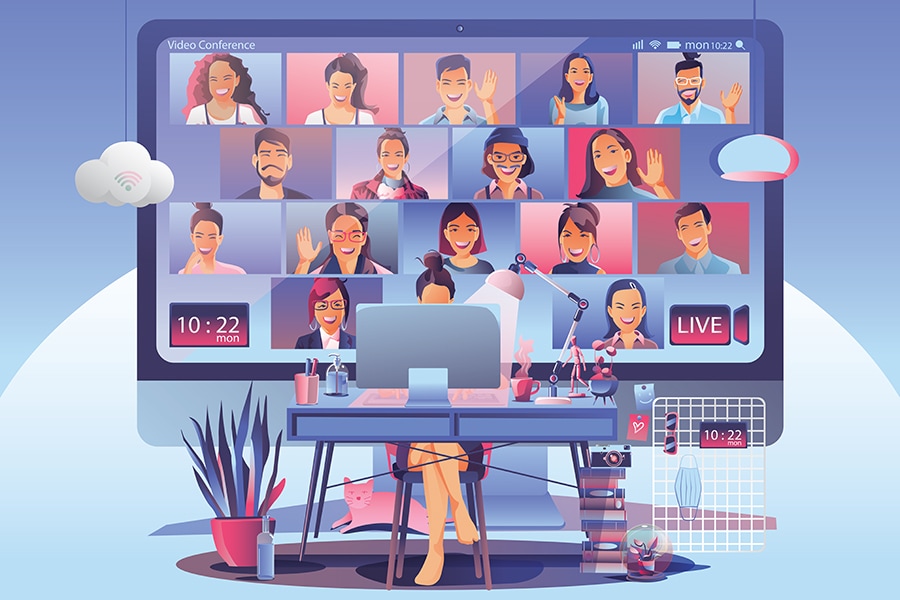
Skills for Gen Z to fit into the future workforce
The adoption of new technologies, along with COVID-19's impact on the global economy and various industries, has created greater demand for jobs that require select technical, industrial and business skills.
 Image: Shutterstock
Image: Shutterstock
The education sector has had to deal with some of the major impact of the on-going coronavirus pandemic. The sector had to combat the challenges of changing from offline to online mode of education, almost overnight. Additionally colleges and universities had to make sure that their students were equipped with the right tools to face the evolving work place of the future. While the pandemic and the total closure of education institutes affected daily functioning of conducting classes, teachers and educators across the country pivoted as per new protocols and made the most of the new online learning experience. The evolution in technology also played a pivotal role in shaping the education 4.0 of our country and opened new horizons for teachers and students alike. However, while the education landscape changed overnight for students, businesses and large corporates also had to change their current working landscape to run business as usual. This gave rise to the need for preparing the future workforce while they complete the last leg of their education.
A recent World Economic Forum report found that more than 42 percent of all jobs will change significantly by 2022, placing greater emphasis on skills such as analytics, design thinking and complex problem-solving as the future of workspaces is rapidly evolving. The adoption of new technologies, along with COVID-19’s impact on the global economy and various industries, has created greater demand for jobs that require select technical, industrial and business skills. Hence, it becomes imperative for educational institutes especially B-schools to provide students with the right skills and knowledge in order to prepare them as an active and contributing member of the future workforce. Some of the contributing factors that will help students as well companies prepare for the road ahead are as follows:
- Upskilling for the right talent: Being a part of an education system, most students are often selecting a niche where they can excel. However, it is only during their internships and industry exposure when they start to carve a niche for themselves to be a part of the workforce. As most jobs are going to be skill based, students will have to reskill or upskill themselves in the area of specialties they want to work in. The World Economic Forum report above also highlights that despite technological advancements, students get little to no practical exposure in areas such as cybersecurity, cloud technology or artificial intelligence. These fields are evolving constantly and have seen great potential for the future workforce. Technology is driving reskilling for Gen X & Y in senior and mid- management, inviting these generations to adapt and adopt technology in their day to day work.
- Driving Remote / Virtual workspaces: the pandemic has helped us all learn how to work during uncertain times. Online Business communication through video meetings, online messaging is making it easy for GenZ who are digital natives and first job aspirants in this new world order. New workplaces will accommodate remote or virtual mode of operations for day to day function. Many students graduating will experience the workforce in a blended mode, workplaces that observe physical and social distancing and official structures that prioritize the health and security of their staff. GenZers are highly proficient and tech savvy who can adopt to advanced tech powered workplaces. These workspaces will also hold greater prospects for the candidates and will enable them to showcase their skills and talents. It will offer them a better scope to present ideas and experiment with multimedia. Remote workspaces have also paved the way for remote interviews and interactions that have given a wider scope to job aspirants. Technology has enabled them to express themselves better and secure more important job roles.
- Being mindful of Diversity and Inclusivity: as the socio political scenarios are constantly evolving, the future of workforce - GenZers are open to more diverse and inclusive workplaces with gender neutral policies. There is more cultural acceptance for fellow employees’ beliefs and preferences. The industry is expanding their horizons, and more brands/ multi-national organizations are embracing non-binary pronouns over being gender specific. The GenZ being the more aware and woke generation will easily fit into and navigate through work-places of the future. Generation Z also encourages businesses to function ethically and with empathy basis the changing socio-political scenario.
- New Business Development: the new generation of workforce is innovative and entrepreneurial which connects them well with millennial entrepreneur startups. According to reports, in the US alone the Generation Z is the largest group of people and have key implications in e-commerce with $44billion in holding power. Many companies are re-adjusting to the tastes and preferences of this group of decision makers. Businesses can leverage their skills, networking abilities and ability to understand the root cause of a given problem to come up with effective business solutions. This can help businesses to broaden their offerings to clients, customers and stakeholders. Organizations can also expand their businesses and find sister units of an existing business.
Workspaces and the outlook towards working in large corporates is constantly evolving within the future of workforce. These candidates will decide the future of many organizations and reform structures as well as day-to-day functions in order to accommodate the new normal along with the existing evolving socio-cultural factors. The above skills will help organizations take their companies to the next level to serve the new age consumers
About the Author
The article is contributed by Prof Dr. Uday Salunkhe – Group Director, S.P Mandali’s Welingkar Institute of Management Development and Research (WeSchool)
[This article has been reproduced with permission from Welingkar Institute of Management Development and Research (WeSchool)]




